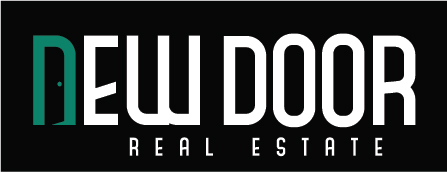Understanding Halal Certification: A Comprehensive Guide
Introduction to Halal Certification
Halal certification plays a vital function in ensuring that food products and services conform to Islamic food rules. The word “Halal” originates from Arabic which means “permissible” or “lawful.” For Muslim customers, the guarantee that the product is in compliance with Halal standards is vital due to ethical and religious motives. Through the years, Halal certification has gained international importance as the demand in Halal products has risen beyond the mainly Muslim nations.
What is Halal Certification?
The Halal certification is an official procedure which demonstrates that a particular product or service complies with the guidelines laid out through Islamic legislation (Sharia). The guidelines are applicable to a broad spectrum of subjects, such as foods, beverages and cosmetics, pharmaceuticals as well as logistics. A Halal-certified product ensures that it’s not contaminated by Haram (prohibited) components like alcohol and pork and was prepared according to the prescribed Islamic guidelines.
Types of Halal Certification
- Certification of the Product This applies to specific products, making sure they comply with Halal standards, from the ingredients to manufacturing.
- Facilities Certification Facilities like slaughterhouses, processing facilities and kitchens may be able to get Halal certification to ensure conformity throughout the entire production process.
- Services Certification Restaurants, catering and hotels are able to obtain Halal certification to ensure that they are Halal-compliant.
Importance of Halal Certification for Businesses
Halal certification can be a huge benefit for companies looking to increase their reach in the market. With the world’s Muslim population reaching 1.9 billion people, the need for Halal products is expected to increase. Halal certification does not just help companies cater to this huge segment, but also boosts their credibility and trust with customers.
Key Benefits of Halal Certification
- Access to new Markets Halal certification permits businesses to gain access to markets in Muslim majority countries as well as regions that have significant Muslim number of Muslims.
- Greater Trust of the Consumer Certification of products can instill confidence in customers, assuring consumers that the product meets the strict Halal standards.
- Enhances Brand Reputation The recognition of being Halal-certified brands can boost the reputation of a business and help it create a loyal customer base.
- Conformity with export requirements A lot of states require Halal certification for imports of products and this is a must for companies that are involved internationally in trade.
Halal Certification Process
Halal certification is a lengthy process. Halal certification process consists of several stages, from application to final approval. Businesses seeking certification must follow the guidelines laid out by the certifying authority.
Steps to Obtain Halal Certification
- Applications Submission: The business submits applications to reputable Halal certification body.
- Examining Documentation The body that certifies examines the documentation of the company including ingredient lists and manufacturing procedures.
- Site Inspection A site inspection is carried out to verify that the facility is in compliance with Halal standards.
- Review and Aproval If the examination was successful, the body that certifies issues a Halal Certificate.
- Yearly Renewal Halal certification is usually valid for a certain period of time, following which it is required to renew through renewal.
Global Halal Certification Bodies
Many organizations across the globe are accountable for Halal certification. The most well-known organizations that are certified include:
- JAKIM (Malaysia): Jabatan Kemajuan Islam Malaysia is a reputable Halal certification authority.
- CHROMATOLOGY0_MUIS (Singapore): The Islamic Religious Council of Singapore provides a wide range of Halal certification services.
- HFA (UK): The Halal Food Authority is one of the most reputable Halal certification bodies across the United Kingdom.
- IFANCA (USA): The Islamic Food and Nutrition Council of America has the ability to certify a wide variety of food products that are suitable for market in the North American market.
Challenges in Halal Certification
While Halal certification has many benefits, it also brings some challenges for companies.
Common Challenges Faced by Businesses
- Complex Regulations: Different countries and regions could have different Halal standards and guidelines.
- Cost of certification The process of getting or maintaining Halal certification can be expensive especially for small companies.
- Supply Chain Management: Ensuring that all supply chains adhere to Halal standards can be a challenge.
- consumer awareness in non-Muslim-majority markets businesses might need to spend money on educating their customers about the importance and importance of Halal certification.
The Growing Demand for Halal Products
A growing demand for Halal certified goods is growing due to the growing awareness and buying power of Muslim consumers. According to research conducted recently of globally, Halal market is predicted to grow to $2.4 trillion before 2024. which includes various sectors like pharmaceuticals, food, cosmetics and tourism.
Key Sectors Driving Halal Market Growth
- Food and beverages The food and beverage industry is the biggest portion within the Halal market, and the demand for Halal meat as well as dairy, snacks and beverages growing.
- Beauty and personal Care Consumers are more and more looking for Halal-certified cosmetics and personal items for personal care that are not made of Haram ingredients.
- Pharmaceuticals The Halal pharmaceutical market is growing as people search for medicines and supplements that conform to Halal standards.
- Travel and Hospitality: Halal tourism is a quickly growing industry, with hotels airlines, hotels, and travel agencies that offer Halal-compliant services.
Related Keywords
- Halal certification bodies
- Halal food certification
- Islamic dietary laws
- The market for global Halal
- Standards for Halal Compliance
- Halal-certified products
- Halal tourism industry
- Cosmetics that have Halal-certified certification
- Halal certification standards
- Muslim consumer market
How to Choose a Halal Certifying Body
Choosing the best Halal certification body is crucial for any business seeking to obtain certification. Things to consider are the credibility of the certifier, their recognition in major markets as well as the type of the certifications that is offered.
Tips for Choosing a Halal Certifying Body
- Reputation Select a certification body that has a good reputation and credibility in the field.
- Market Recognization: Make sure that the body certifying the product is recognized in the markets where the products are sold.
- Experience Search for an organization that is certified with years of expertise in the industry.
- Customer Service A certifying body which provides outstanding customer support is valuable during the certification process.
Future Trends in Halal Certification
The Halal market continues expand various trends are shaping how the industry will develop in the coming years. Halal certification.
Emerging Trends
- Digital Halal Certification The use of electronic platforms to obtain Halal certification is growing which makes it more productive.
- Blockchain Technology Blockchain Technology: Blockchain technology could increase transparency and traceability in Halal supply chain. Halal Supply Chain.
- Sustainability Halal certification increasing incorporating sustainability requirements as a result of consumer demand for products that are ethical.
- Global Harmonization: The effort is underway to align Halal standards across the world, which will facilitate global trade.
Conclusion
Halal certification is an essential element for companies that want to reach out to the world’s Muslim market. With Halal certification, businesses can assure the compliance of Islamic diet laws, increase trust from customers, and gain access to new markets. In spite of the obstacles and the potential benefits, Halal certification can be a good investment for businesses in a variety of industries. As market for Halal products grows keeping up-to-date with Halal certification methods and developments is crucial to long-term achievement.




